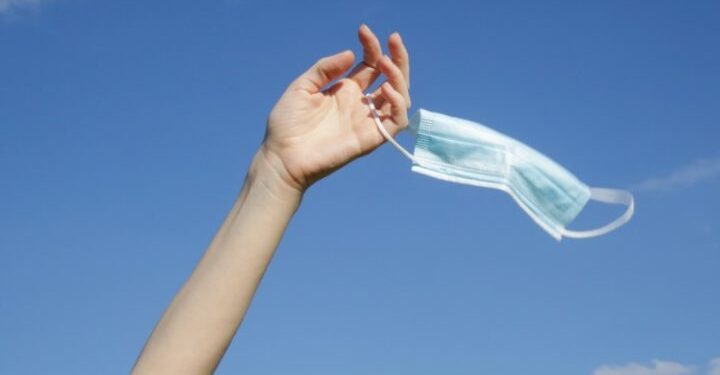
A good way to frame the problem with “relying on experts” is to consider that a good number of Supreme Court opinions are 5-4. So all these people are supposedly juridical “experts,” but end up on opposite sides of many legal questions.
Another way of saying this is that roughly half of them are often wrong.
This should perhaps be considered by those bemoaning, in recent articles, how Americans’ trust in experts is at near-historic lows. For expertise may often be a necessary condition for good policy — but not a sufficient condition. More on that later.
The Daily Digest reports on the story, writing that from “the church to the military; The Supreme Court to banks, public schools, the media, police, and the medical system — confidence in institutions has generally eroded significantly over recent decades.”
“A recent Pew survey found that scientists are increasingly going the way of lesser trusted institutions,” the site continued. “In Oct. 2023, 73% of U.S. adults said they had a great deal or fair amount of confidence in scientists to act in the public’s best interests. That’s down big time from the 86% who said the same in Jan. 2019.”
The Digest presents 10 politically correct, supposed reasons for this declining trust, ranging from politicians’ attacks on journalists and scientists to social-media influence to people without expertise “doing their own research” to disinformation. It’s not till the story’s latter part that the Digest admits that many institutions have “dropped the ball too,” citing as examples the claim that Covid shots would prevent transmission and contraction of the coronavirus; and the scientific establishment’s conflicts of interest, such as pharmaceutical companies finding “experts” who’d say their opioids weren’t addictive. The site also mentions “science’s” ever-changing conclusions as a factor.
In reality, though, supposing that at issue is “trusting” or “not trusting” the “experts” reflects a comic-book understanding. The issue is far more nuanced.
When news articles state, as they commonly do, “experts say” or “according to experts,” a very naive AI program might assume this means all experts in the world were surveyed. In truth, the media are often alluding to a minuscule number of experts who happen to espouse a given finding. Harking back to the SCOTUS example, they’re not telling you that the expert divide may be 5-4 — or 200-3 — but are just presenting the five or the four (or even just the three of the 200).
The latter is a major factor, too. Media do not report on all science, and the research they do relate is too often fringe science because, being the man-bites-dog story, it attracts eyeballs.
A good example is reportage decades ago citing researchers who predicted, based on an analysis of running world records’ progression, that women would overtake men in track events by the late 1990s. Not only didn’t this happen, but the intersex performance gap actually began widening in the mid-’90s (possibly due to better drug testing).
But the claim’s inanity didn’t matter. The media were happy to cite the study — conducted by two exercise physiologists, I believe — even if thousands of their colleagues would’ve contradicted it. If it bleeds, it leads.
If you’d ask, “How could two credentialed ‘experts’ draw such a ridiculous conclusion?” the answer is that perhaps they didn’t. Remember that we could apply to experts here what Thomas Jefferson said about judges: They “are as honest as other men and not more so. They have with others the same passions for party, for power, and the privilege of their corps” — and for grants, acclaim, and fame. And those two physiologists sure got noticed, didn’t they?
In fact, as I reported in 2014’s “Blinding Me With Science: Fraud and Folly for Fame and Funding,” a troubling percentage of scientific studies are actually fraudulent.
There’s another issue, too. Warning of AI’s possible dangers, some have presented the example of instructing powerful future AI to take measures maximizing environmental preservation — and it then exterminating all humans.
Yet narrow, tunnel-vision-born peril is already a reality — with natural intelligence. For instance, consider that Anthony Fauci’s ex-boss, former National Institutes of Health Director Francis Collins, admitted earlier this year that Covid-lockdown folly resulted from experts’ “tunnel vision.”
He said that “putting public health bureaucrats in charge meant that a one-dimensional policy would ensue,” related The Western Journal in January.
Yet is it any revelation that people generally have expertise within only a very narrow range of endeavor and that when all you have is a hammer, everything looks like a nail? In fact, I and others, not hammer-bound but operating with a full set of tools (and a full deck), warned early on in the pandemic that lockdowns were the result of one-dimensional thinking and were folly. Experts such as scientist Knut Wittkowski also sounded this alarm and were censored — in deference to The Experts™.
So what is the truth on finding Truth? The Washington Post proclaimed earlier this year, “Doing your own research is a good way to end up being wrong”; the paper is right, too. It’s also true that blindly dismissing experts, or blindly following them, is a good way to end up being wrong. It’s correct as well that mis- and dis-information abound. Yet know this: It’s present in every arena.
A Ministry of Truth isn’t found in government, mainstream media, or anywhere in the establishment — or out of it. Discovering Truth has always been difficult, and there’s no simple formula for doing so. Only love of Truth and sincerely seeking it with an open heart and mind, and with wisdom, makes its discovery probable.
This brings us to the moral of this story: Expertise without wisdom often yields only foolishness — with a nice veneer of credentialed credibility.

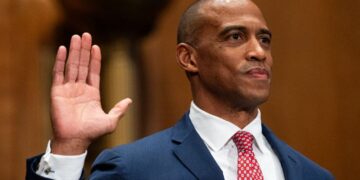

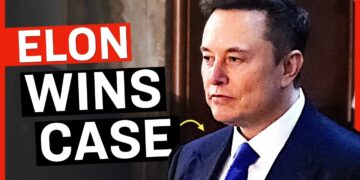
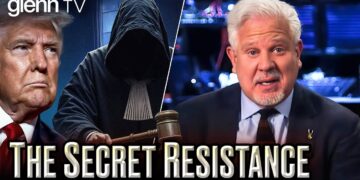

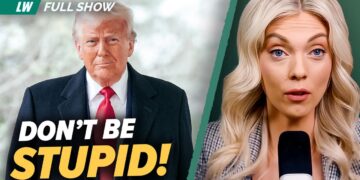
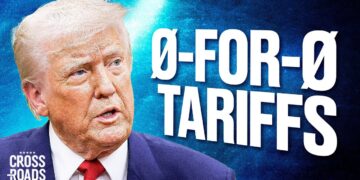

























 Reaction & Commentary
Reaction & Commentary






